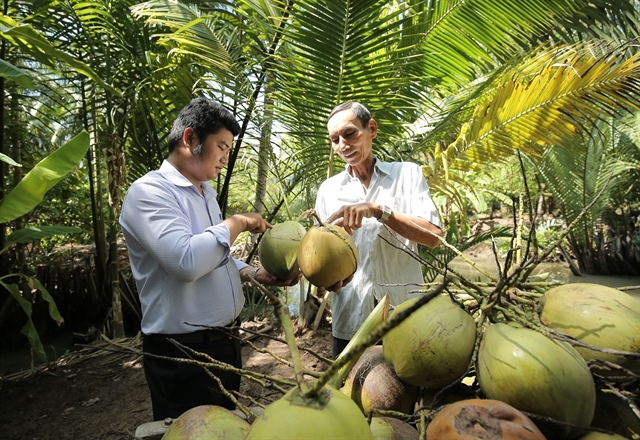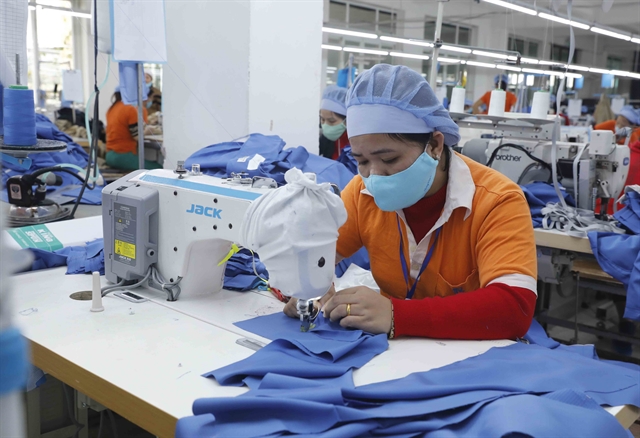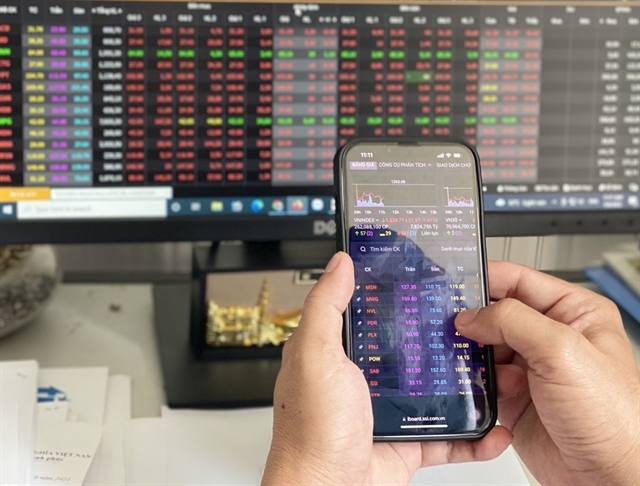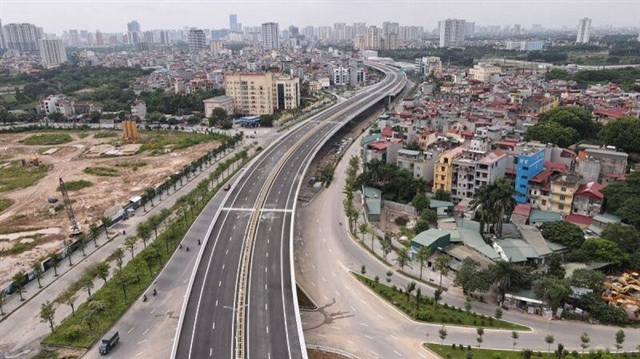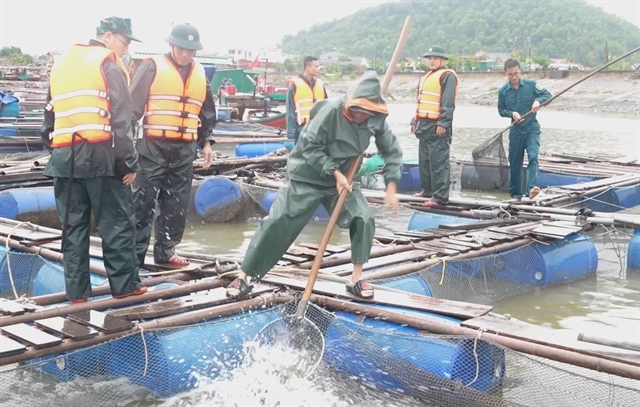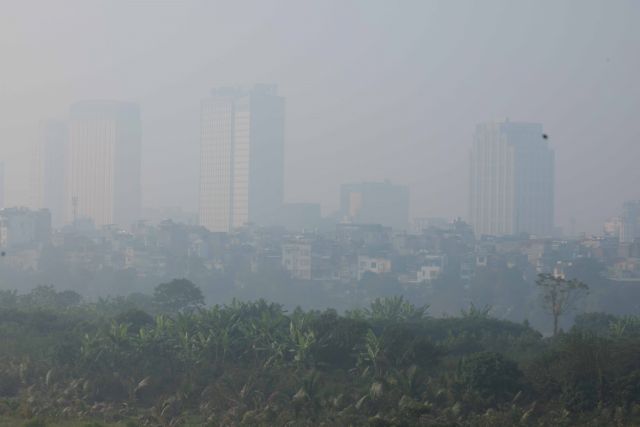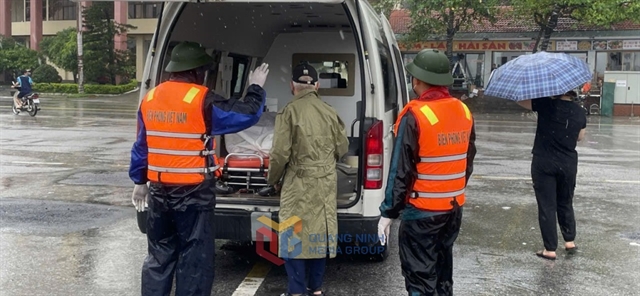

A number of people who have fought in wars for their country drive around on cycles with three wheels. Many of these people need their tricycles to earn money, which is not an easy thing for disabled people to do.
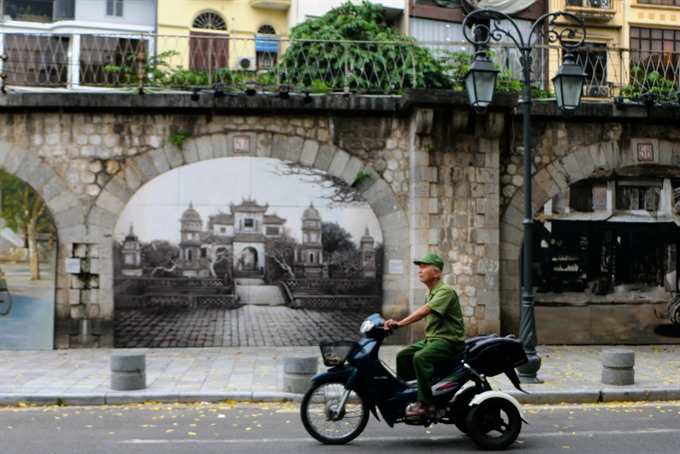 |
| King of the road: Mr. Dân rides around on his bike. VNS Photo Đoàn Tùng |
A number of people who have fought in wars for their country drive around on cycles with three wheels.
Many of these people need their tricycles to earn money, which is not an easy thing for disabled people to do.
by Nguyễn Mỹ Hà
War veteran Nghiêm Quý Dân rides around the city on his tricycle, designed and assembled in a garage many years ago. The engineer who first thought of the system for the two back wheels used to work for Honda in Hà Nội and has passed away.
Dân, born in 1942, actually has three vehicles like this to get himself around.
"I ride one bike, if it breaks down, then I bring it to the garage and use the spare one. I also have one that has a spacious foot rest, when I take my dog out on the bike," Dân says.
"I feel very proud sitting behind him on his bike," his wife Hòang thị Phi Phụng adds. "He drives me everywhere I want to go and I am very happy."
Dân is just one of hundreds of war veterans and invalids who rely on self-made tricycles to get around Hà Nội, HCM City and other towns and cities. He said that just a few weeks ago, some two hundred war veterans met with representative of the city’s transport authority to discuss their needs and the city’s new regulations banning homemade tricycles.
"My bike has a licence plate," Dân says. "But I have many friends and comrades, who are well into their 60s and 70s, who still have to run around to make a living."
He said one of his friends now had to make money to raise his grandchildren because his son had died. There are plenty of reasons for them to have to ride their bikes without a licence, but the main one is the ability to be independent and active despite their disabilities.
"We are elderly, and all our lives we live by what is right," says Trương Ngọc Kết, a Quảng Trị war veteran who has lost 91 per cent of his work capacity. "We need to get around to make ends meet. We obey the law."
Dân rides his bike everywhere – to do business, to his home village, which is 50km from Hà Nội, and to send some of his comrades to their graveyard.
Youth in the army
"I joined the military in the 1960s and became an army scout, fighting on the southern battle fields. I was arrested and later imprisoned on Phú Quốc Island for seven years and only released in 1973 after the Paris Peace agreement," Dân says.
“I don’t want to talk about that time of my life, because it was very sad. And my heart sinks thinking of my friends who died in prison," he says, tears rolling down his face.
Dân said as a young man of 23, he walked south to fight in the Tây Nguyên (Central Highlands) with other comrades.
"It took us six months to arrive. There were many hardships and shortages of everything, but we never thought of giving up. My youth spent in the army was very beautiful, righteous and carefree," he says.
"I am forever grateful for what the life in the army has taught me."
Dân said after being injured he spent a long time recovering in rehabilitation centres in the north until the country was united in 1975. Later he was discharged with a certificate saying he was disabled, losing 81 per cent of work capacity.
"I never asked the government or the army for any additional remuneration [besides the regular monthly stipend]," he says, "I lost my right arm and was wounded many times. I have only four fingers left, but I rebuilt my life with them."
Dân said he left Hà Nội as a young worker in a state-run factory to take army service, after he came back, he could not work there anymore. He found work making plastic sandals in Đồng Xuân market.
"Everything went really well and we could have become very rich if the market was not burnt down in a fire in the early 1990s," he says. "We couldn’t do it anymore, and we were broke."
He and his wife later bought sandal wood to make incense. The business went well until the market’s second fire. "Then we lost everything again," his wife says.
"I learnt what it takes to start all over," Dân says.
After that he got together with some other friends to produce farming machinery and their life slowly got better.
Fulfilling life
"I must say, whether I sit behind him on his bike or walk beside him, I feel most proud," his wife of 43 years, a literature and history high school teacher, says. "I’m from an artist family and was well-educated. I told my parents, I chose him and have never regretted it after all these years.
"What I love most about him is he is always busy doing something. He never sits idle."
"Now, you see, we have a house to live in, another for rent, we are financially stable."
Dân says, "I hope that we can manufacture authorised three-wheelers like other Asian countries Thailand, Japan and China, so that our fellow countrymen with certain levels of disability can be active and get around." VNS
GLOSSARY
War veteran Nghiêm Quý Dân rides around the city on his tricycle, designed and assembled in a garage many years ago.
Assembled means put together from parts.
The engineer who first thought of the system for the two back wheels used to work for Honda in Hà Nội and has passed away.
“Passed away” is a gentle way of saying died.
“I also have one that has a spacious foot rest, when I take my dog out on the bike," Dân says.
“Spacious” means “with a lot of room”.
Dân is just one of hundreds of war veterans and invalids who rely on self-made tricycles to get around Hà Nội, HCM City and other towns and cities.
War veterans are people who once fought in a war.
Invalids are people who are weak from injuries or inabilities.
To rely on something means to need it.
A tricycle is a cycle with three wheels.
He said that just a few weeks ago, some two hundred war veterans met with representative of the city’s transport authority to discuss their needs and the city’s new regulations banning homemade tricycles.
Regulations are rules.
Banning homemade tricycles means not allowing them.
There are plenty of reasons for them to have to ride their bikes without a licence, but the main one is the ability to be independent and active despite their disabilities.
Independent means not needing others.
Disabilities are problems to your body that make it difficult to live an ordinary life.
"We are elderly, and all our lives we live by what is right," says Trương Ngọc Kết, a Quảng Trị war veteran who has lost 91 per cent of his work capacity.
Someone’s work capacity is the amount of work they can do.
"We need to get around to make ends meet. We obey the law."
To make ends meet means to make enough money to live.
"My youth spent in the army was very beautiful, righteous and carefree," he says.
Righteous means decent.
Dân said after being injured he spent a long time recovering in rehabilitation centres in the north until the country was united in 1975.
Rehabilitation means getting back to how you once were, after having been injured.
United means “having come together”.
Later he was discharged with a certificate saying he was disabled, losing 81 per cent of work capacity.
To be discharged means to be able to leave an organisation.
"I never asked the government or the army for any additional remuneration [besides the regular monthly stipend]," he says, "I lost my right arm and was wounded many times. I have only four fingers left, but I rebuilt my life with them."
A stipend is a payment.
"We couldn’t do it anymore, and we were broke."
To be broke means to have no money left.
He never sits idle."
Idle means lazy.
"Now, you see, we have a house to live in, another for rent, we are financially stable."
If someone is financially stable, they have enough money coming in to not be in trouble.
WORKSHEET
State whether the following sentences are true, or false:
© Duncan Guy/Learn the News/ Viet Nam News 2018
1. True; 2. False; 3. False; 4. True; 5. True.

